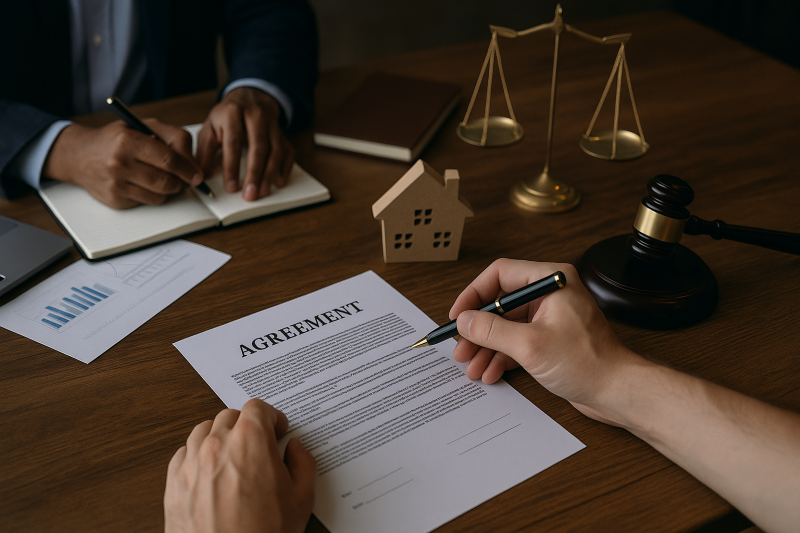
When friends or family team up on a small business idea; like flipping a house or opening a storefront, they often try to cut corners with a simple “one-pager” agreement. It seems practical: why pay a lawyer when you can write it out yourselves? Unfortunately, Texas law doesn’t take a casual approach to business arrangements. That one-page agreement can have serious consequences depending on how it’s written, especially if the business fails or disputes arise.
The Two Buckets: Equity vs. Loan Agreements
Most DIY business agreements fall into one of two legal categories: equity partnerships or loan arrangements. Understanding which one you're entering is critical.
- Equity Agreements: These involve shared ownership and responsibilities. If you're pooling money and effort to buy, renovate, and flip a property, Texas law may treat your deal as a general partnership or joint venture, whether or not you file anything with the state.
- Loan Agreements: If one party contributes funds with the expectation of getting their money back with interest, that's a loan even if it’s not labeled that way. This type of arrangement requires a promissory note, possibly a security agreement, and in some cases, a UCC-1 filing to perfect the creditor’s interest in collateral.
These classifications matter because they determine who is liable, how taxes are handled, and what protections are in place if things go wrong.
The Hidden Risk of General Partnerships
In Texas, simply operating a business with another person, even without formal documents can create a general partnership under the Texas Business Organizations Code § 152.051. This matters because each partner in a general partnership has personal liability for the actions and debts of the partnership, even those they didn’t directly cause.
For example, if your DIY agreement involves co-signing a lease or taking on a commercial loan, and one partner defaults, the other partners could be held personally liable for the entire amount. This is a harsh surprise for people who assumed their liability was limited to their investment or that the agreement protected them informally.
How to Do It Right: Use the Correct Legal Structures
To avoid liability and clarify obligations, you should never rely on an informal or one-page agreement when starting a business. Instead:
- For ownership deals, create a limited liability company (LLC) with the Texas Secretary of State. These structures offer personal liability protection and clearer ownership terms.
- For loans, ensure proper documentation such as a promissory note, a security agreement, and record any applicable liens. Texas law allows for perfection of security interests under the Texas Business and Commerce Code Chapter 9.
Legal fees on the front end are an investment that can save you tens of thousands in litigation or personal exposure later. As the saying goes, an ounce of prevention is worth a pound of cure.
All information provided on Silblawfirm.com (hereinafter "website") is provided for informational purposes only, and is not intended to be used for legal advice. Users of this website should not take any actions or refrain from taking any actions based upon content or information on this website. Users of this site should contact a licensed Texas attorney for a full and complete review of their legal issues.
